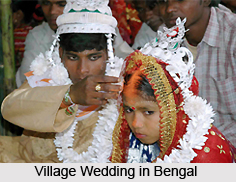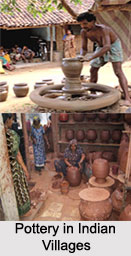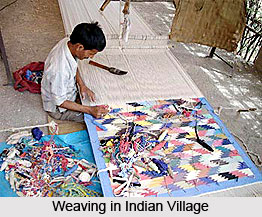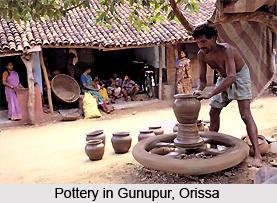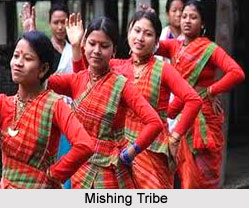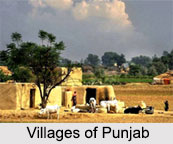 Villages of Punjab are rich in tradition and cultural heritage. A majority of the state"s total population lives in the villages. The villagers live a life full of joy and entertainment and they celebrate each and every occasion together. Music and dance play a major part in their celebrations. The Punjabi style of celebration is famous all over the world. The villages of Punjab are also considered the lifeline for the state, as their economic, agricultural or industrial strength largely depend upon the villages.
Villages of Punjab are rich in tradition and cultural heritage. A majority of the state"s total population lives in the villages. The villagers live a life full of joy and entertainment and they celebrate each and every occasion together. Music and dance play a major part in their celebrations. The Punjabi style of celebration is famous all over the world. The villages of Punjab are also considered the lifeline for the state, as their economic, agricultural or industrial strength largely depend upon the villages.
Society in the villages of Punjab is a mixture of a variety of religious communities. People follow different religious paths and also celebrate their respective fairs and festivals. The major religions in the villages of Punjab include the Muslims, Hindus, Sikhism, Jains, Buddhists, etc. Apart from these, various tribal communities also reside in the villages of Punjab. The major tribes of Punjab include the Jats, Khatris, Aroras, Sainis, Kambojas, Sansis, etc. Punjabi is the most widely spoken language in the villages of Punjab.
Education in Villages of Punjab
The governmental authorities have established many primary and secondary schools in the villages of Punjab to provide the villagers with primary and secondary education. The overall educational scenario in the villages of Punjab is impressive. However, continuous initiatives are being taken by the governmental authorities to further improve the status of rural education.
Occupation in Villages of Punjab
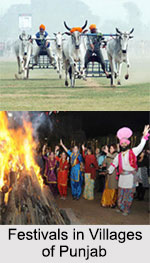 Agriculture has always been the principal occupation of people in the villages of Punjab. Punjab is one of the most agriculturally developed regions in India and contributes hugely to the total agricultural production of India. There are two main harvests in a year in the villages, namely the Rabi or spring and the Kharif. The villagers cultivate the crops like wheat, gram, barley, oil seeds, fodder crops, potatoes, winter vegetables, etc. during the Rabi season. On the other hand, the Kharif or autumn harvest consists of the crops like rice, maize, sugarcane, cotton, pulses, gram and peas, bajra, jowar and the like chillies, onions, gourd, etc. The villagers practice two system of cropping namely the Dofasli Harsala and Ekfasli Harsala. While, the Dofasli Harsala means two harvests in a period of 12 months, the Ekfasli Harsala means a single crop in a year. Apart from agriculture, various small-scale and medium-scale industries also provide employment in the villages of Punjab.
Agriculture has always been the principal occupation of people in the villages of Punjab. Punjab is one of the most agriculturally developed regions in India and contributes hugely to the total agricultural production of India. There are two main harvests in a year in the villages, namely the Rabi or spring and the Kharif. The villagers cultivate the crops like wheat, gram, barley, oil seeds, fodder crops, potatoes, winter vegetables, etc. during the Rabi season. On the other hand, the Kharif or autumn harvest consists of the crops like rice, maize, sugarcane, cotton, pulses, gram and peas, bajra, jowar and the like chillies, onions, gourd, etc. The villagers practice two system of cropping namely the Dofasli Harsala and Ekfasli Harsala. While, the Dofasli Harsala means two harvests in a period of 12 months, the Ekfasli Harsala means a single crop in a year. Apart from agriculture, various small-scale and medium-scale industries also provide employment in the villages of Punjab.
Festivals in Villages of Punjab
People in the villages of Punjab are famous all over the country for their wonderful way of celebrating various fairs and festivals. All the festivals celebrated in Punjab are colourful in nature and people perform various traditional music and dance forms as part of celebrating festivals. The major village festivals of Punjab include Holi, Baisakhi, Lohri, Maghi Dance, Diwali, Gurparav, Tika, Teej, Vasant Panchami, etc. People perform the popular dance forms like Bhangra, Dhamal Dance, Gidda Dance, Sammi Dance, Jhumar Dance, Jaago, Luddi, Kikli, Julli, Teeyan Dance, etc. during the festivals. The villagers also wear their traditional dresses during the festivals.
Villages of Punjab are a favourite tourist destination for many people in India to experience the wonderful Punjabi way of celebrating festivals. The lush green paddy fields and wonderful scenic beauty of the villages also attracts many people from all over the country.
